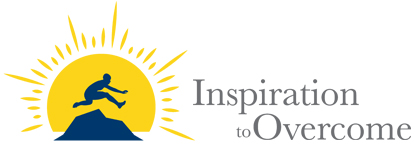“Reaching out for professional help is an act of courage, and following through with it even when it gets difficult is a sign of strength.”
—Inspiration to Overcome
For anyone who has been diagnosed with a mental disorder, I highly recommend the continued support of a licensed clinical psychologist or therapist. If you have not already been diagnosed with a mental disorder, and you are experiencing frequent or bothersome symptoms such as anxiety, sadness, rumination, tiredness, panic, hallucinations, or any other sort of mental distress, it is extremely important that you seek diagnosis from a qualified psychiatrist or related specialist, who will work with you to determine the proper course of treatment.
Anxiety-Based and Mood Disorders
Cognitive-Behavioral Therapy (CBT) is usually the primary treatment for anxiety and mood disorders, however mindfulness, Acceptance and Commitment Therapy (ACT), and other forms of psychotherapy can also be useful approaches to treatment. For Obsessive-Compulsive Disorder (OCD), a form of CBT called Exposure and Response (or Ritual) Prevention (ERP) is especially important. For depression, forms of CBT called Behavioral Activation and Dialectical Behavior Therapy (DBT) are used to reframe distorted thoughts and combat behavior avoidance. All CBT is based on the connection between your thoughts, emotions, and behaviors, and the idea that you can refute thoughts but not eliminate them, must learn to tolerate emotions until they pass, and can change your behavior regardless of both. That being said, these things can be very difficult, and a high degree of commitment is required. There is no way to recover without facing discomfort and uncertainty.
Medications can also be an important part of treatment, but not all of them work for everyone. I recommend seeing a qualified psychiatrist to see if medication(s) are right for you. Because everyone responds differently to medications, finding a good fit can be a process of trial and error. In any case, it is highly unlikely that medication alone will solve your problems. This is because anxiety and mood disorders are psychological disorders based on symptom pathology, not neurological disorders defined by a known cause. In other words, there is no known single biological or genetic cause that can be blamed for anxiety and mood disorders or any mental disorder. This is because both physical and psychosocial processes play a role in the development of the neural pathways in your brain. Medications are important, but not a cure-all. Often the best way to change your brain chemistry and neural pathways for good is through psychotherapy, particularly CBT.
Severe Cases
If you are really struggling to get by and short-term inpatient care and outpatient therapy are not enough, it might be necessary to consider specialized residential treatment such as that provided by Rogers Memorial Hospital in Oconomowoc, WI, USA. Rogers is one of the best places in the world for intensive treatment of adults, children, and adolescents suffering from mental illness or addiction. Residential programs are designed to provide a supportive environment, and treatment is tailored to the individual. They are not the same as inpatient hospitals, and there are frequent opportunities to go outside or leave campus. Length of stay is typically 2-3 months. Rogers also offers inpatient, intensive outpatient, and partial (day) hospital programs at locations around the US. Residential programs are very expensive (~$1000/day, actually not as expensive as inpatient), and securing private insurance coverage can be difficult in the US (securing coverage elsewhere may also require a lengthy approval process). However, if you are struggling to get by at home, and if you are ready to commit yourself to the hard work it takes to get well, even if you don’t believe it can happen at the moment, these programs could be lifesaving.
List of Residential Programs:
Herrington Recovery Center (HRC) – drug and alcohol addiction treatment for adults
OCD Center – internationally-known center for treatment of OCD and related disorders in adults
Eating Disorders Center (EDC) – center for treatment of eating disorders and related anxiety disorders in adults
Adolescent Center – CBT-based program for ages 13-17 (this is where I received treatment)
Child Center – CBT-based program for ages 8-13
Nashotah Program– a DBT-intensive program for adolescent girls
FOCUS – a collection of programs for adults and adolescents with mood disorders
Website: rogersbh.org
